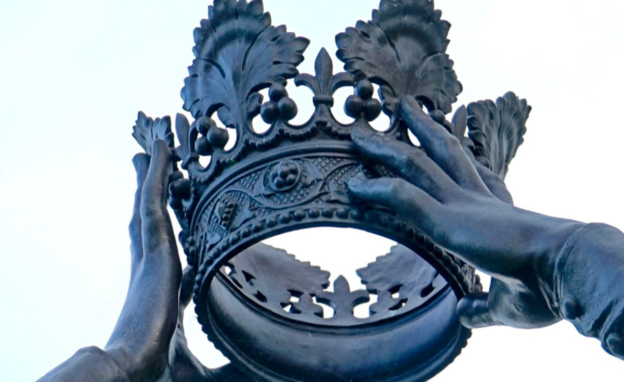King Charles III’s coronation occurs later this week. For avid Royalists and Monarchy followers, the snippets released to the media of the plans for the event give a sense of how the Monarchy will demonstrate the extravagance, pomp, and ceremony that comes with a coronation, while apparently also trimming costs given the Cost of Living. One thing’s for sure; many of us will be watching out of curiosity given we have not seen a coronation in our lifetimes.
The coronation of King Charles might attract a few muffled protests, but most will celebrate or ignore the day. In Israel, a new day dawned as Samuel proclaimed and coronated Saul I as King of Israel. But it was an event that began with rebuke, continued with cowardice, affirmed God’s Law and sovereign hand, and ended with a show of division.
After Samuel anointed Saul as king, Saul returned home and kept quiet about the whole thing, possibly hoping it would all go away. But Samuel was led by God to give Israel what they desired, even if it was due to sinful motives.
So Samuel called together Israel at Mizpah for the great reveal (v.17). But before they got to the pleasantries, Samuel had a few words to speak from his sponsor.
Samuel had rebuked Israel for seeking a king previously, and once again took up the opportunity. Samuel reminded Israel that it was God who had freed them from captivity in Egypt, and brought them to the land they lived in (v.18). God was the one who ought to have led them. Yet they had rejected God and demanded a king like the nations, so now they would get their wish, whether they came to like it or not (v.19).
You can imagine the uproar if the Prime Minister, Archbishop of Canterbury, or Kanye interrupts the coronation with words of rebuke! Sometimes, though, direct speech is called for, and this was one of them.
To show that it was God providing the king as a form of judgement, Israel was sorted by lots through tribes, clans, and households until the private anointing of Saul was publicly revealed (vv.19-21). Where ordinarily punishment such as plague came, instead came a king. A king chosen by God (Prov. 16:33), not Samuel or a secret cabal. But where was Saul?
When the callup came, Saul was not found. Israel asked if there was perhaps another brother among the sons of Kish, until God clearly told them “Behold, he has hidden himself among the baggage” (v.22).
Israel came and dragged out Saul, who stood head and shoulders above his subjects (v.23). Perhaps dripping with irony, Samuel then proclaimed “Do you see him whom the LORD has chosen? There is none like him among all the people” (v.24)… Just like you wanted. Hiding in the baggage. What great leadership traits.
Despite this start, Israel recovered and shouted out “Long live the King!” (v.24).
After this, Samuel grounded King Saul and Israel by reminding them of the rights and duties of kingship (v.25), no doubt based on Deuteronomy 17. This reminded them all that, whatever Saul said and did, he was still subject to God’s reign and authority. As their earthly leader, Saul was responsible for ensuring that God’s People kept the law – God’s Law.
After this, Samuel sent everyone home (v.26). No celebratory bunting and street parties, from what we can tell (more like a Kiwi Coronation then?). But Saul’s coronation brought division to Israel; already, judgement had come. While some followed Saul home, “men of valour whose hearts God had touched” (v.26), some “worthless fellows” said “How can this man save us?” (v.27) and refused to acknowledge his reign.
This whole event clearly demonstrated God’s sovereignty over all. Israel was rebuked for their sinful rejection of God, and got the king they both deserved and desired; a good looking, tall, but cowardly fellow who hid among the baggage. One chosen by God, unambiguously, for his people.
It also reminds us that all leadership is subject to God and his Law. We also, even if the rulers are undeserving, are called to subjection to the extent their laws comply with God’s Law, and not to act like those “worthless fellows.” Samuel’s reign was initiated with a reminder of God’s Law, and that a good reign will come from good, godly leadership. This same truth applies to our earthly leaders today, and our spiritual leaders.
The division which Saul’s coronation brought is also a reminder of the division that came when another king, a better king, was revealed. Jesus’ ministry brought division, and as he died on the Cross for our sins some mocked him, suggesting that he could not truly save them if he could not save himself (Mark 15:31).
One day, Jesus will not hold his peace any longer as Saul did (v.27), but will return on clouds descending to reign eternally and end all opposition. Then all God’s People will truly sing praises and shout “Long Live the King”!

